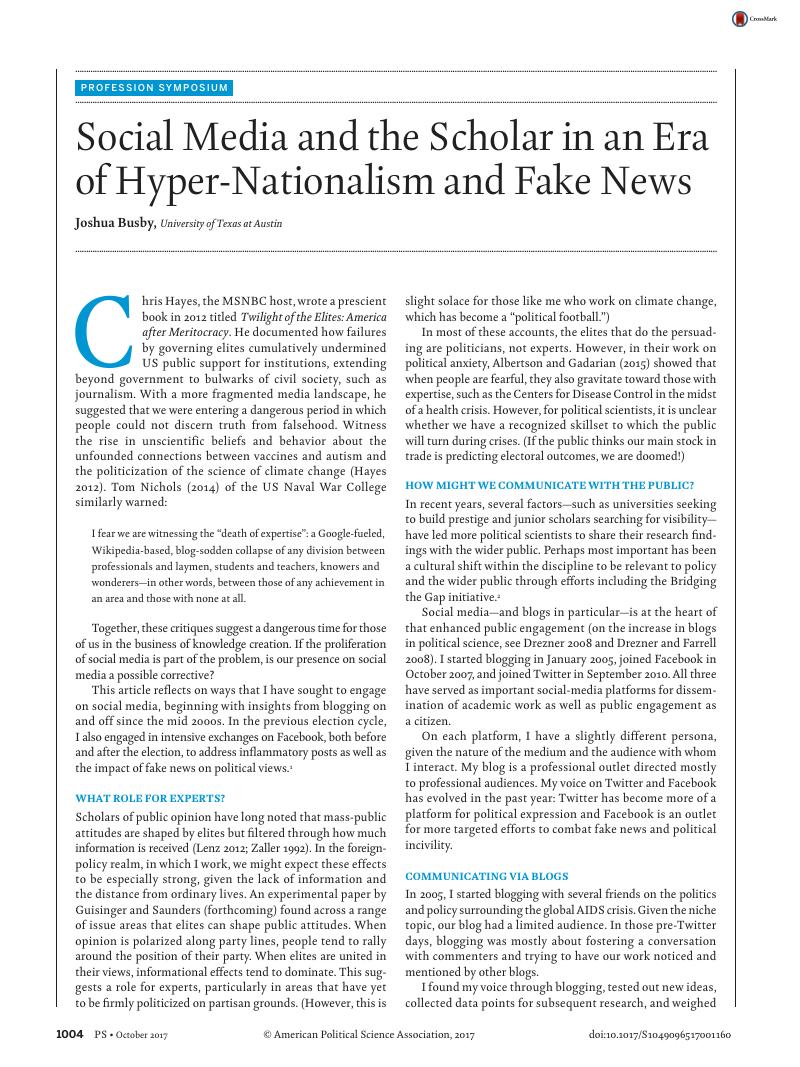Crossref Citations
This article has been cited by the following publications. This list is generated based on data provided by Crossref.
Cho, Eun-Hee
2022.
SNS News Sharing: Focusing on Identifying, Disadvantage Perception, and Coping Behavior.
Journal of Social Science,
Vol. 33,
Issue. 1,
p.
307.





